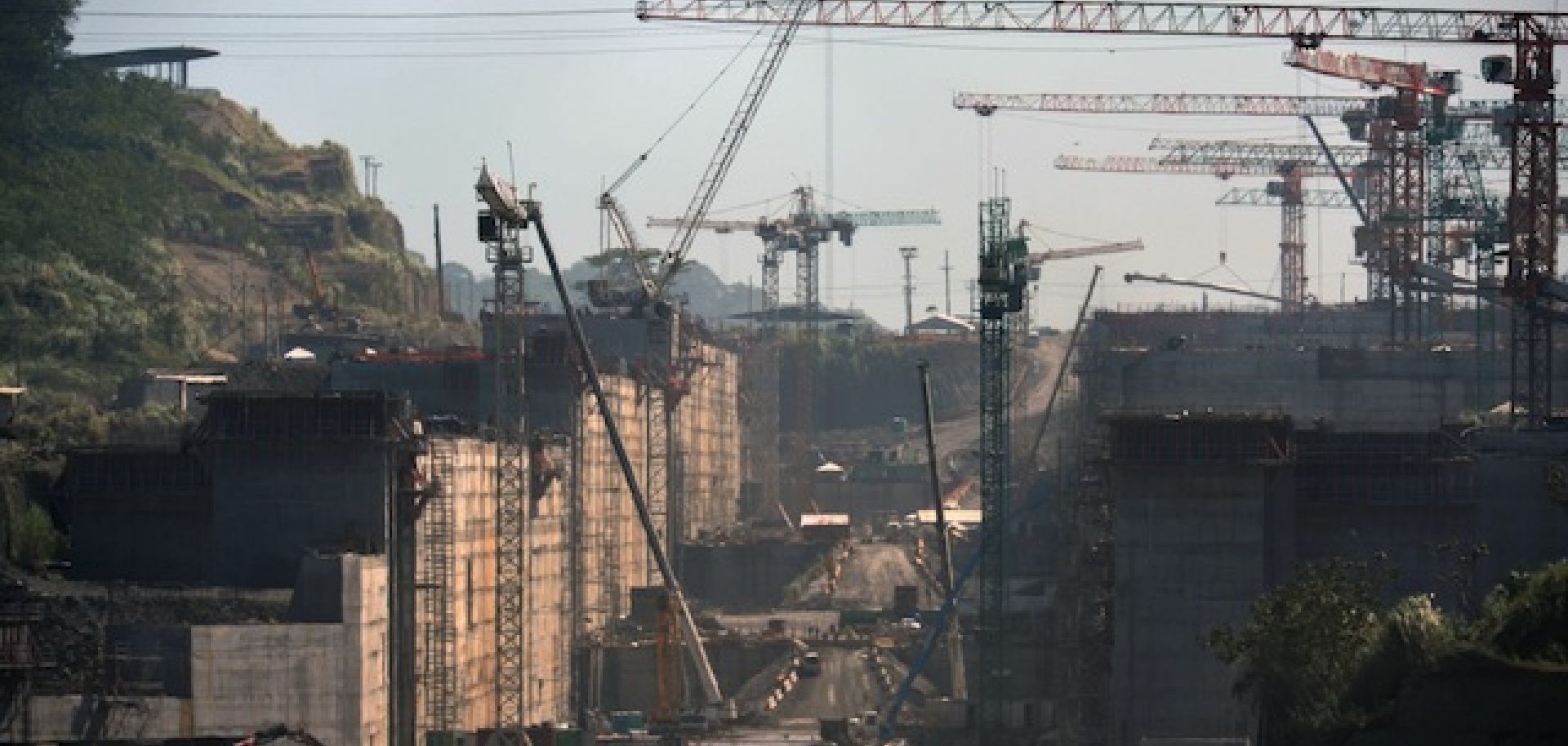ASSESSMENTS
Panama Canal Expansion: The Dangers of Long-Term Delays
Jan 27, 2014 | 11:18 GMT

(RODRIGO ARANGUA/AFP/Getty Images)
Summary
Significant delays to the Panama Canal expansion project are increasingly likely as negotiations between the multinational construction consortium, Spanish financiers and Panamanian authorities drag out. The Grupo Unidos Por el Canal consortium is threatening to stop work at the end of January after already extending the previous deadline past Jan. 20. According to the Panamanian Dispute Adjudication Board, which is arbitrating the negotiations over who will cover cost overruns, a work stoppage could mean that the canal will not be completed until as late as 2020.
Because the project has been delayed once already, from an estimated completion date of 2014 to mid-2015, a postponement of a year or so would be well within the bounds of previous setbacks. How long it is delayed now will be determined by several factors, including whether the project will need a new consortium of builders and financial backers; such decisions will be shaped by ongoing negotiations between the principal stakeholders. The duration of any holdup itself will be critical in determining whether the ongoing dispute is geopolitically significant. A delay of a year or less is unlikely to have major consequences. On the other hand, a five-year delay could strain regional ports and transportation infrastructure, particularly as the United States continues to emerge from its economic downturn.
Subscribe Now
SubscribeAlready have an account?
